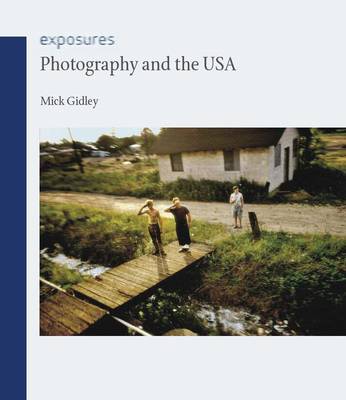
- Retrait gratuit dans votre magasin Club
- 7.000.000 titres dans notre catalogue
- Payer en toute sécurité
- Toujours un magasin près de chez vous
- Retrait gratuit dans votre magasin Club
- 7.000.0000 titres dans notre catalogue
- Payer en toute sécurité
- Toujours un magasin près de chez vous
Description
From Ansel Adams to Carleton Watkins, Diane Arbus to Weegee, Richard Avedon to James VanDerZee, American photographers have recorded their vast, multicultural nation in images that, for more than a hundred years, have come to define the USA. In Photography and the USA, Mick Gidley explores not only the medium of photography and the efforts to capture key events and moments through photographs, but also the many ways in which the medium has played a formative role in American culture.
Photography and the USA encompasses the major movements, figures and works that are crucial to understanding American photography, but also pays attention to more obscure aspects of photography's history. Focusing on works that reveal many different facets of America, its landscapes and its people, Gidley explores the ambiguities of American history and culture. We encounter images that range from an anti-lynching demo in 1934 to Dorothea Lange's poster "All races serve the crops in California;" an early photographic view of Niagara Falls against the painstaking detail of Edward Weston's Pepper, No. 30; a fireman's fight in the San Francisco earthquake of 1906 to the Ground Zero images of 2001 by Joel Meyerowitz; an 1890s "Wanted" image to Elliot Erwitt's shot of the Nixon-Kruschchev "Kitchen Debate." Organizing his narrative around the themes of history, technology, the document and the emblem, Mick Gidley not only presents a history of photography, but also reveals the complexities inherent in reading photographs themselves.
A concise yet comprehensive overview of photography in the United States, this book is an excellent introduction to the subject for American Studies or visual arts students, or for anyone interested in US history or culture.
Spécifications
Parties prenantes
- Auteur(s) :
- Editeur:
Contenu
- Nombre de pages :
- 184
- Langue:
- Anglais
- Collection :
Caractéristiques
- EAN:
- 9781861897701
- Date de parution :
- 15-11-10
- Format:
- Livre broché
- Format numérique:
- Trade paperback (VS)
- Dimensions :
- 190 mm x 216 mm
- Poids :
- 635 g

Les avis
Nous publions uniquement les avis qui respectent les conditions requises. Consultez nos conditions pour les avis.






